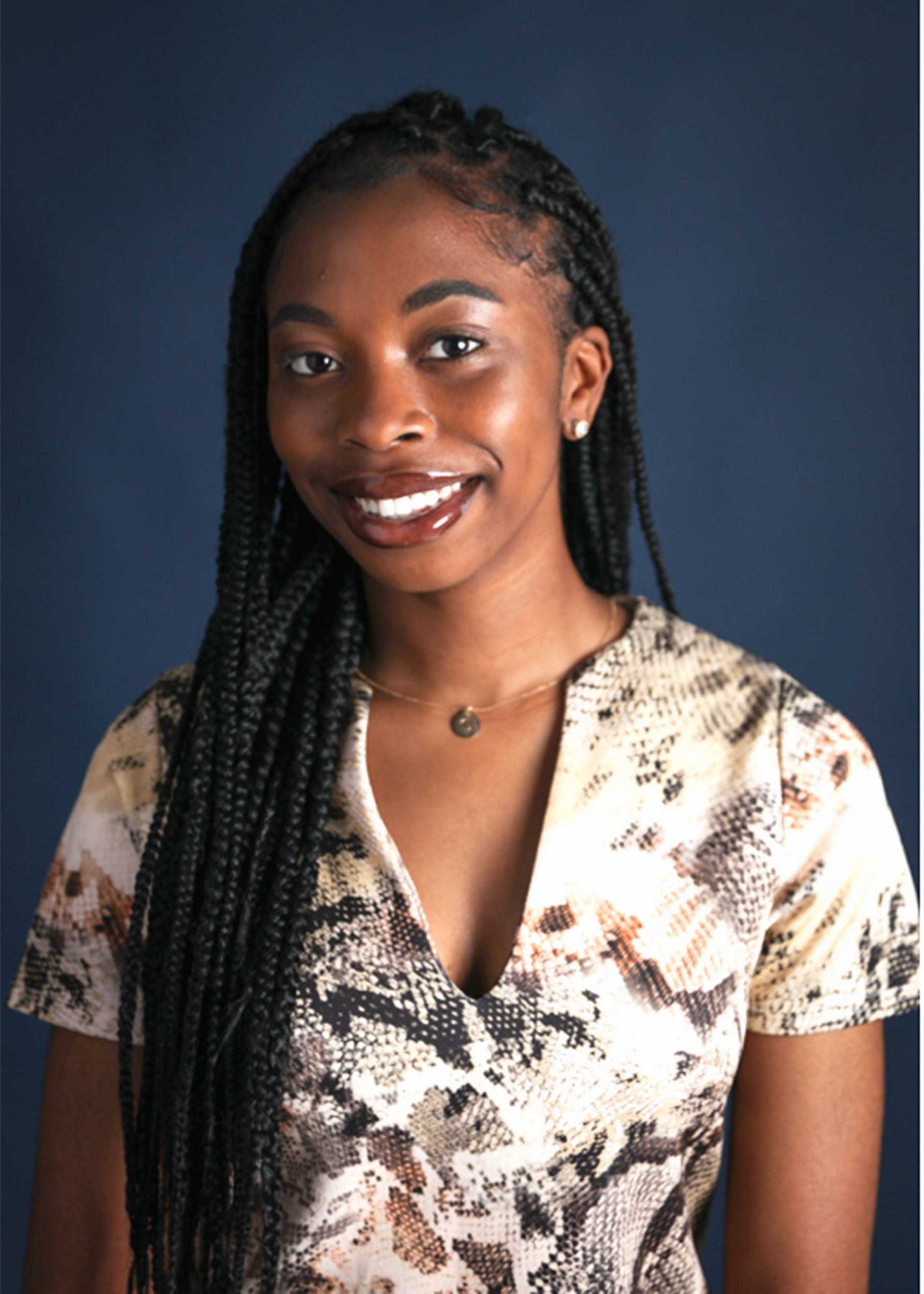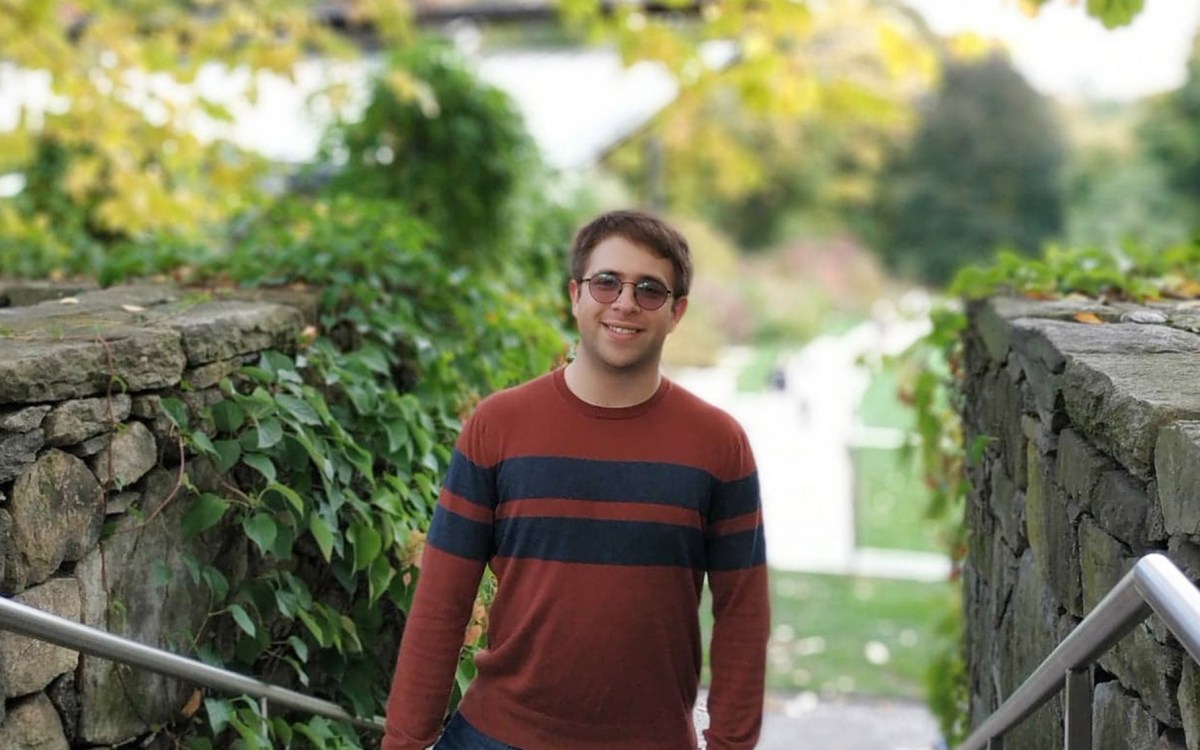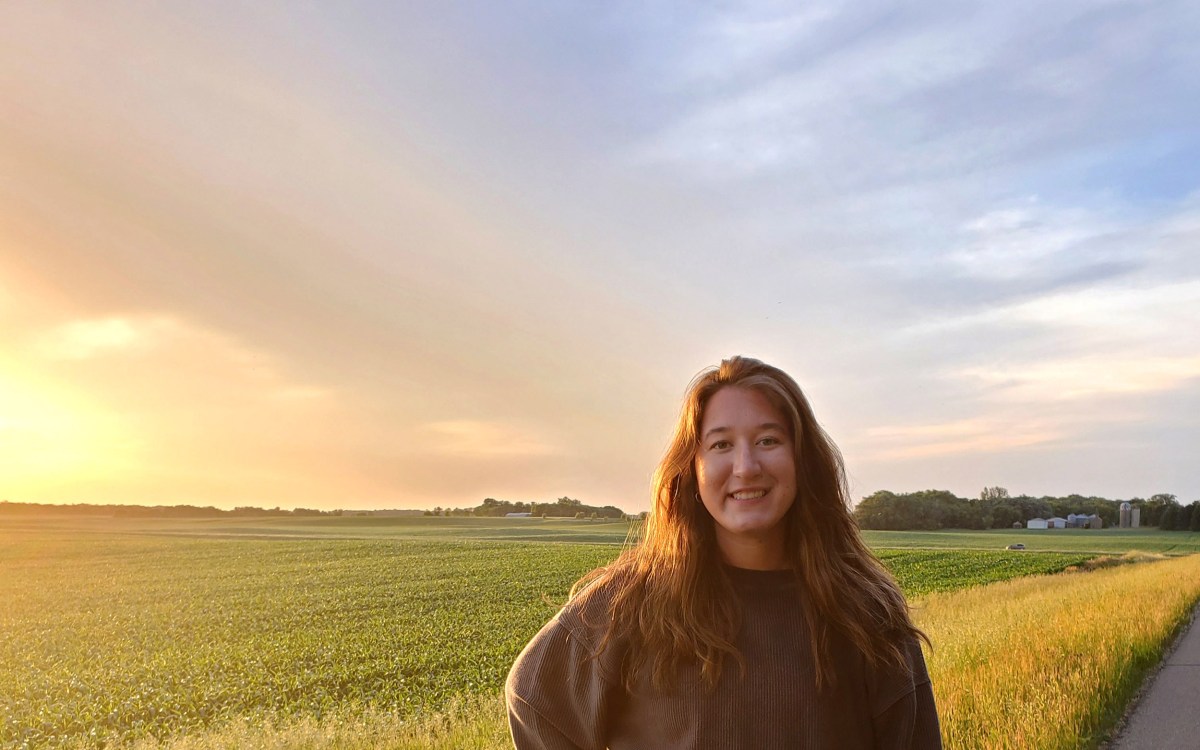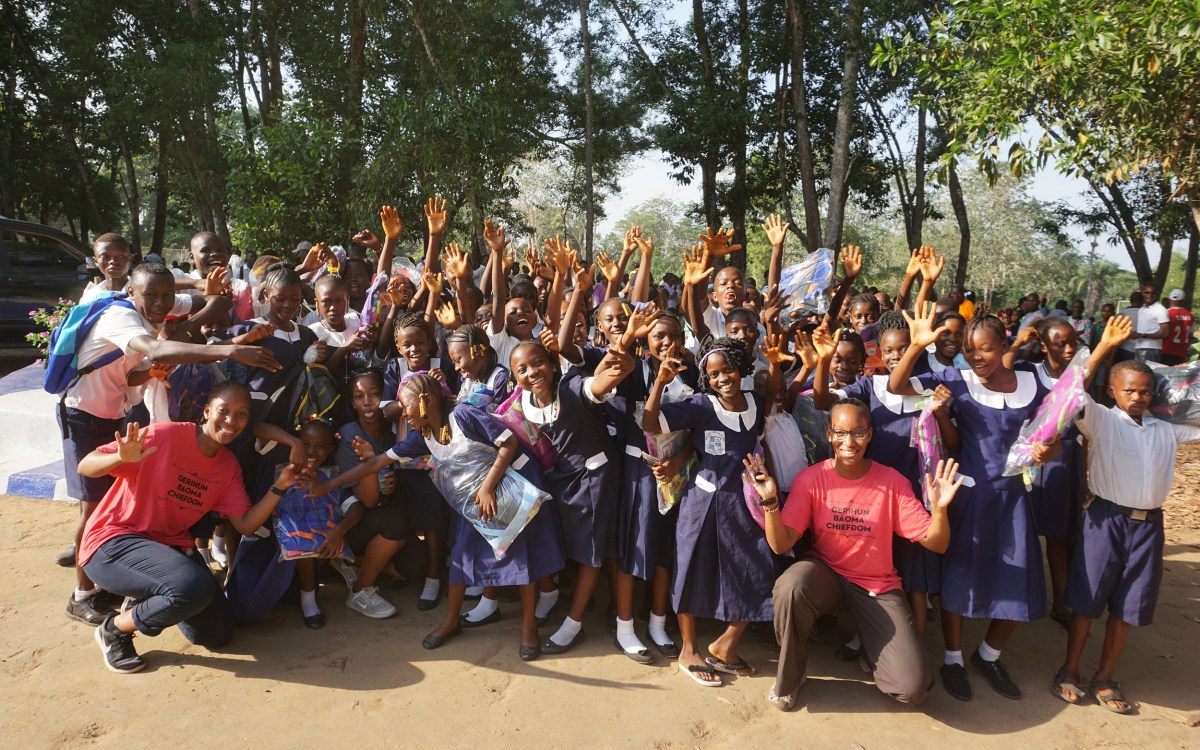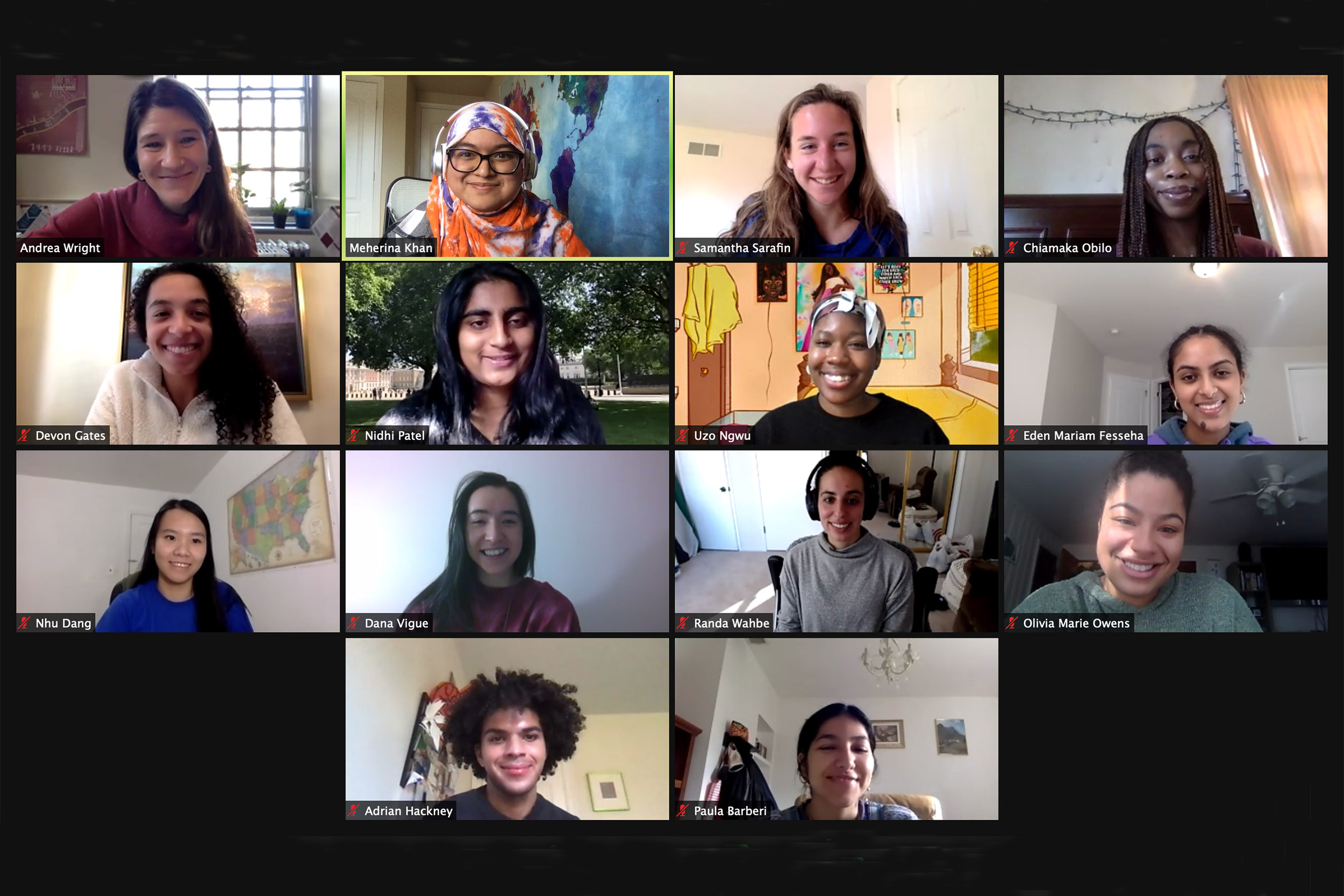
Students in Andrea Wright’s engaged scholarship course, “Care in Critical Times.”
Stepping up to the front line
Students take care of local communities in engaged scholarship course
One student worked with the Harvard Muslim Youth Program (HMYP) to build a supportive, online community space for Muslim youth in and around Boston. Another served as a home-health aide for the local elderly population in Arizona. Others focused on mentorship, jazz education, and student mutual-aid networks.
All of these endeavors were part of an engaged scholarship course “Care in Critical Times” taught this fall by Andrea Wright, lecturer in anthropology, Allston Burr Resident Dean of Eliot House, and assistant dean of Harvard College. Students learned how culture, society, and systems of power shape the exchange of care between individuals and communities, and they put their lessons into practice through semester-long “community care projects.”
“When I created this course, it was to explore gender, race, and class, and the ways in which they intersect with care,” Wright said. “It was about interrogating existing stereotypes surrounding who can and should care, and who isn’t expected or required to care. It became clear that this course was also a moment for us to reflect on our own humanity and to connect all of the pieces of the course to our local communities, specifically through radical acts of care. The students far exceeded my expectations for how seriously and sincerely they would engage with this topic, and how much it would mean to all of us, at this critical moment.”
All of the projects and related materials and resources now live in an online public syllabus that serves to reimagine and redefine care and inspire others to do the same. A few students recently spoke to the Gazette about their experiences.
Nhu Dang ’21
Home in Maryland due to COVID-19, Dang was inspired to combat food insecurity in her local community by volunteering at First Fruits Farm. There she harvested sweet corn, potatoes, zucchini, and other foods from the farm’s 203 acres of land, all of it earmarked for distribution to pantries and homeless shelters across the state.
“Because of COVID-19, the number of individuals experiencing food insecurity has multiplied. Nonprofit food suppliers, such as First Fruits Farm, are facing new burdens and challenges, and are in need of support,” said Dang. “Through this manual work, I was able to see the direct impacts of care, and I have been inspired to continue working on the farm, even after this course ended.”
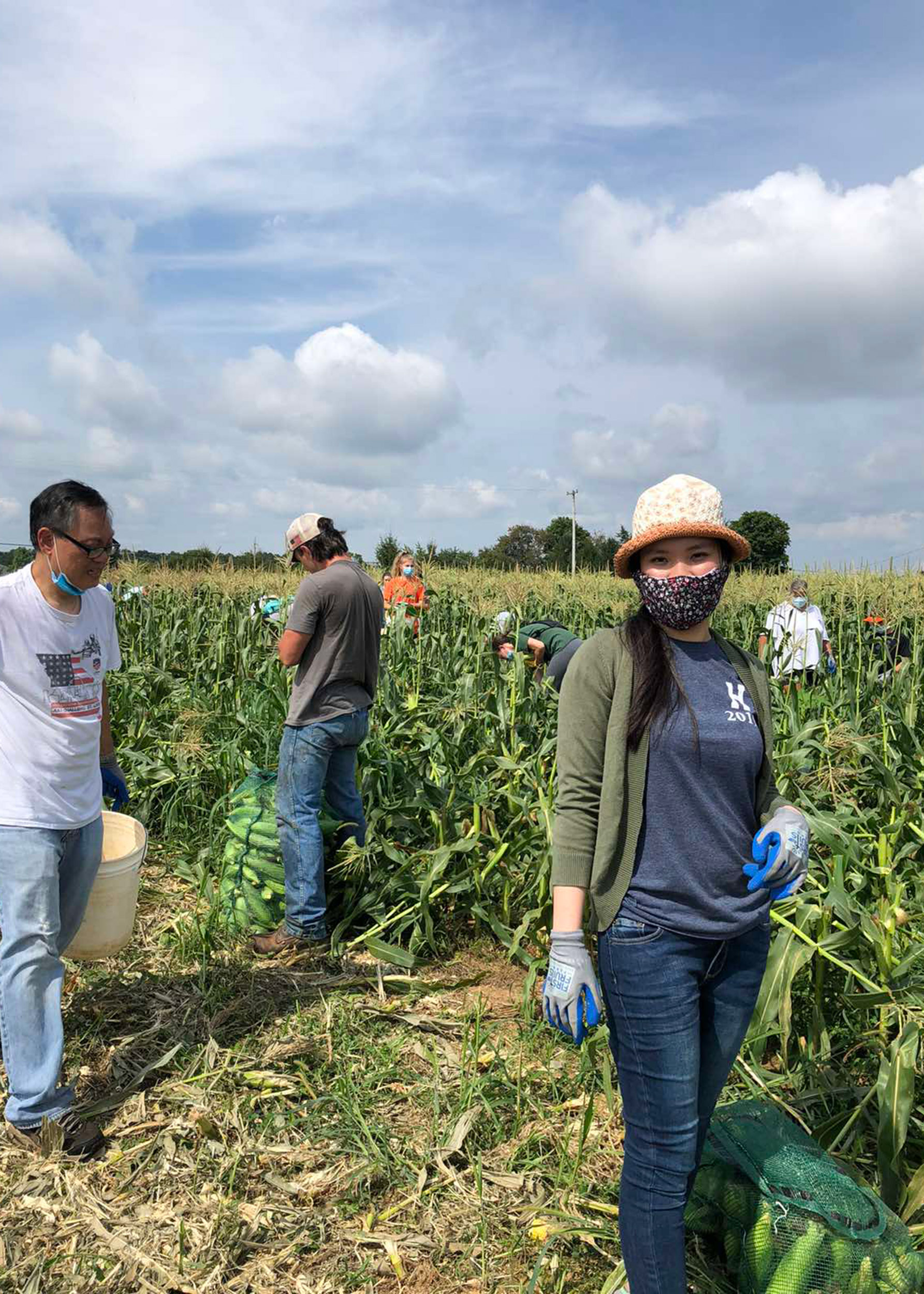
Nidhi Patel ’22
After working with Saheli, an anti-domestic-violence organization in Greater Boston, Patel focused on intimate partner violence for her part of the public syllabus, drawing on news articles, academic sources, websites, videos, and poetry. The section opens with a poem of hope and empowerment, leaves guests to scroll through other curated resources, then finishes with past, present, and future policies with the potential to eradicate gender violence.
“Through the public syllabus, visitors can critically assess the causes and consequences of gender violence, read stories of survivors, and gain a broader understanding of the sociocultural norms that perpetuate this problem in our society,” said Patel. “I hope visitors leave it with a more nuanced comprehension of the different dimensions through which the COVID-19 pandemic has impacted already-vulnerable populations.”
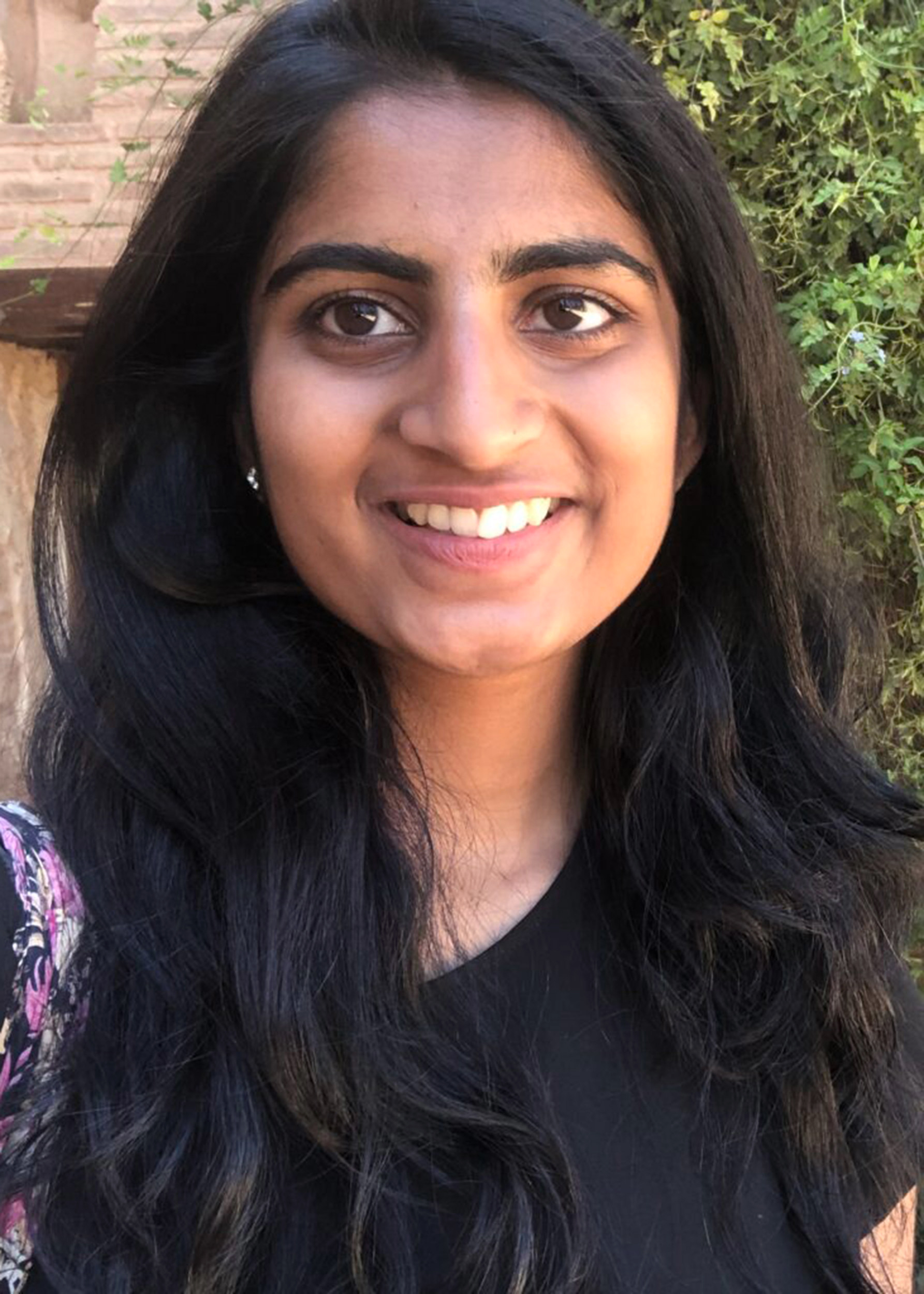
Chiamaka Obilo ’21
“In our current, critical moment of the COVID-19 pandemic, people are constantly providing care to others. Yet Black women are rarely on the receiving end of this care. Who is listening to the stories of Black women?” said Obilo. “I wanted to find a way to document the narratives of Black women and preserve them. I wanted to show these women that we are listening to, understanding, and learning from their stories.”
Obilo decided that the most effective way to document these narratives would be to partner with the University of Connecticut’s Pandemic Journaling Project, a research effort to collect journal entries from individuals all over the world as they experience the COVID-19 pandemic. The preserved writings, voice recordings, and photographs will exist as a piece of a fuller, more accurate history of COVID-19, one not driven solely by and about the powerful.
“This project has served as a mental health resource for Black women and others, as it has allowed these individuals to process their current experiences,” said Obilo, who is a member of the project’s student advisory board. “In the end, the project will preserve these women’s important narratives. Twenty-five years from now, we will know and understand their stories.”
